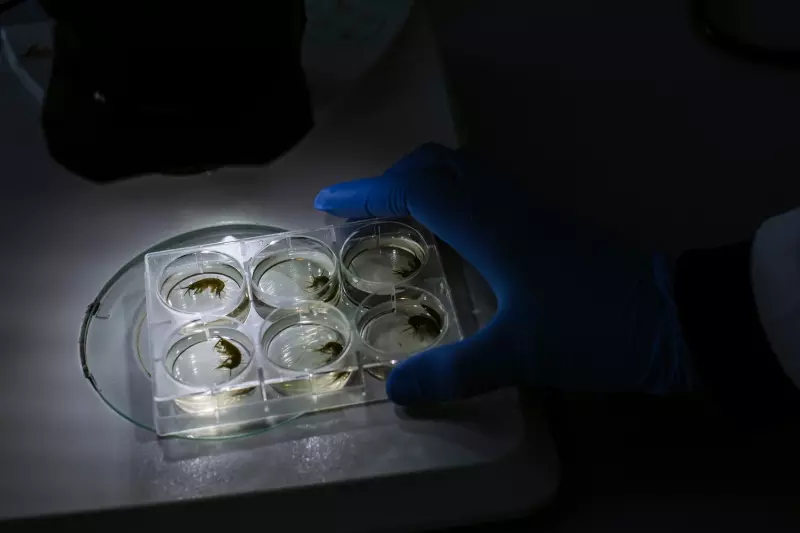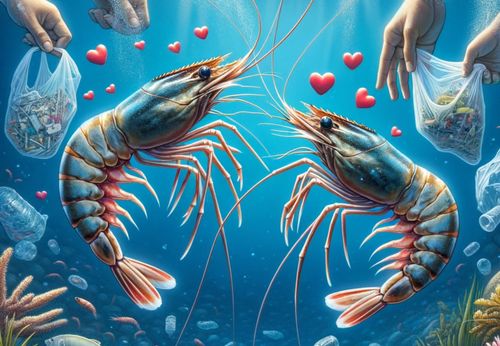At this point in time, it's no secret that the plastics we keep dumping into the ocean are coming back to haunt us. Real bad, mind you. Scientists have even found microplastics in the human blood stream. Fresh research says chemicals found in plastic waste are also keeping some aquatic life from sticking around with a mate and laying the pipe.
In a groundbreaking study, scientists have discovered that chemicals in our beloved everyday plastics are making it hard (oh the irony) for 'shrimp-like' creatures to get it on. Yep, marine amphipod Echinogammarus marinus are changing their romantic routines thanks to the intoxicating allure of toxic plastic additives.
While we've been busy worrying about the big, visible plastics and the whole 'animals getting trapped or eating them' saga, experts at the University of Portsmouth tested four of these chemicals mood-killers found in our favorite products like medical supplies, food packaging, and, oh, kids' toys.

Here's the kicker: these 'shrimp-like' creatures, who usually can't get enough of each other for a full two days, were put through a kind of Love Island trial. Exposed to each chemical, their mating dance turned into a slow waltz at best, and at worst, they didn't even bother pairing up. There's even a video to showcase this tragic romance – or lack thereof.
Not only did these additives play matchmaker-from-hell in the worst possible way, but they also had a special effect on the shrimps' sperm. We're talking up to a 60% decline in sperm count. While a lowered population for these tiny sea folks sounds like their own internal affair, it could wreck things for humans in the long run.
“These creatures are commonly found on European shores, where they make up a substantial amount of the diet of fish and birds. If they are compromised it will have an effect on the whole food chain," says a member of the research team. Welp, the alarm bells have been rung!

